Girl Power
You're never too young to change the world
Cindy, 12, president of Ecuador's Children's Government.
Mission: To create better opportunities for children living in poverty.
Twelve-year-old Cindy Espinoza is acutely aware of the poverty afflicting the children of the dusty shantytown where she lives in Ecuador.
"It's sad, but a lot of children in my neighborhood can't go to school," she says. "Their parents don't earn enough money, so they have to put their children to work."
So, two years ago, hoping to make some changes, Cindy ran for president of Ecuador's Children's Government, an initiative launched in 1996 by a UK-based nonprofit organization called Plan International. Her motivation was to encourage Ecuadoran children living in poverty to take action to improve their communities. Among the promises Cindy made as a candidate: literacy courses and a community house where the neighborhood children could study and play safely.
"Most children here don't get to do enough of either thing," she explains.
Apparently, Cindy hit on a need. In May of 1999, she was unanimously elected for a two-year term. As president, Cindy has already established a community center. She spends time there every day, helping kids with homework and setting up literacy courses for adults and sewing classes for unemployed mothers. She also launched a program to teach home health remedies to mothers who can't afford doctors.
Stay In The Know
Get exclusive access to fashion and beauty trends, hot-off-the-press celebrity news, and more.
Since being elected, Cindy has met the mayor of Guayaquil and has been interviewed several times by the local newspaper. Already, her dreams are beginning to come true.
Learn more about Cindy and the Ecuador's Children's Government at www.plan-international.org.
Aubyn, 15, launched Suitcases for Kids at age 9.
Mission: To provide suitcases to foster children for their frequent moves.
When Aubyn Burnside was 9, her older sister, a social-services employee, told her something that distressed her: She said whenever foster children moved to a new home, they had to lug their belongings around in garbage bags, because they couldn't afford suitcases. "My sister asked my mother if she could give them some of our old luggage. And I started thinking about how hard it must be for these kids to carry stuff around in a garbage bag -- what it did to their self-respect."
So Aubyn had a brainstorm. She made dozens of posters asking for suitcase donations and plastered them around her hometown of Hickory, NC. For three weeks, nothing happened. Desperate to help, Aubyn talked the Salvation Army into selling her 31 suitcases for $15. That got her started and eventually donor luggage started rolling in.
Six years later, Aubyn's nonprofit organization -- which has chapters in every state and in 14 foreign countries -- has collected more than 25,000 suitcases.
"I'd like my project to raise awareness so much that people will automatically think old suitcases go to the Department of Social Services, the way they think glass goes in the recycling bin," Aubyn says.
She's also working on getting more funding for mental-health counseling services for foster kids: She appeared before Congress in May and is in Washington at least once a month talking with child-welfare agencies.
"Imagine if you were just getting settled somewhere and someone said, 'You're leaving in the morning.' Foster kids go through a lot of trauma when they're moved, and they need people to talk to about it."
Contact Suitcases for Kids by:
Amber, 18, founded Happy Helpers for the Homeless at age 10.
Mission: To distribute hundreds of free lunches to the homeless every week.
One of Amber Coffman's earliest memories is of her mother dragging her to a local shelter to volunteer as a playmate for kids. A few years later, while writing a book report on Mother Teresa, 10-year-old Amber was inspired to return to the shelter on her own.
"I'm drawn to the homeless," she says, "because I'm the daughter of a single working mother and things haven't been easy for us. But I knew I couldn't provide shelter like Mother Teresa did, so I tried to come up with something doable -- and that's when I hit on lunches."
Amber spent days soliciting donations from groceries and restaurants in and around her hometown of Glen Burnie, MD.
"Most of the owners didn't take me seriously or were worried about being liable if someone got sick," she says.
Finally, she talked McDonald's into donating buns and cheese and convinced the local 7-Eleven to let her use its refrigerator for storage. In February 1993, Amber, with the help of her mother and a few volunteers, made and distributed her first 50 lunches to the homeless. Today, her organization, Happy Helpers for the Homeless, enlists the help of 50 young volunteers to serve 600 lunches a week in the Baltimore area, and chapters have sprung up all over America. Kids have even called with inquiries from Guam and Canada.
If you are interested in getting involved with Happy Helpers, call Amber at (410) 766-4973.
Brooke, 15, started Pollution Solution Kids at age 9.
Mission: To galvanize other kids to preserve the environment.
Tired of seeing soda cans and beer bottles strewn along the road of her rural Virginia hometown, 9-year-old Brooke Crowther came home from school one day and designed a flyer. She exhorted kids who were as disgusted as she was by the litter to join Pollution Solution Kids. A few weeks later, six kids -- plus some parents (referred to as "honorary members") -- showed up for the group's first activity: picking up trash and taking it to the recycling center.
"There are beautiful creeks and streams and rivers in our town, but all the trash there just ruins it. I just thought, If we don't do something about it now, imagine what it will look like later."
In 1996, Brooke and her group won a $350 national Do Something Grant and spent it cleaning up her community's creeks and rivers, outfitting the local library with books about saving the environment and animals and publishing a newsletter for kids about how they could contribute. Now the organization is all over the East Coast, and Brooke is fielding calls from kids around the country wanting to start their own chapters. And last year, Virginia's Secretary of Natural Resources and the Virginia Petroleum Council presented Pollution Solution Kids with the 1999 Virginia Environmental Stewardship Award.
"My favorite part is knowing that we're not just bettering the environment for ourselves," says Brooke, "we're keeping it healthy for future generations, too."
Learn more about other organizations like Pollution Solution Kids at www.earthforce.org. Earth Force, of which Brooke's Pollution Solution Kids is a part, is a national environmental group powered by young people, with satellite clubs in many cities and states.
Tara, 18, founded Hats Off for Cancer at age 14.
Mission: To donate hats to young cancer patients who have lost their hair.
Tara Ann Lawrence was working as a volunteer with children at the American Cancer Society in Hunterdon County, NJ, when one of them confided in her that the toughest thing about living with her illness was losing her hair. "I thought about it a lot. I couldn't imagine how hard that would be for someone my age, dealing with the stares," Tara says. At age 14, she started writing letters to mayors and heads of companies based in her home state, asking them to donate baseball caps to children undergoing radiation.
Today, Hats Off for Cancer has chapters in 50 states and three foreign countries, and the organization has received autographed hats from the likes of Barbara Walters, Rosie O'Donnell, 'N Sync and the cast of The Today Show. Tara has other projects in the works as well: She plans to edit a book of stories and poems by kids with cancer, and she hopes, eventually, to use funds from her organization to start a summer camp for kids with cancer.
"Working with cancer victims is very important to me since my grandfather died of cancer when I was 10. It makes me feel like I'm doing something for him, too."
Read more about Tara and Hats Off for Cancer here.Amanda
Amanda, 17, cofounded the School for Iqbal at age 13.
Mission: To campaign against child labor abuse.
In the U.S. to receive a human-rights award in 1994, a 12-year-old Pakistani boy named Iqbal Masih visited Amanda Loos' junior high class and told the story of how his parents had sold him into slavery when they couldn't repay a loan. A few months after Iqbal spoke, 13-year-old Amanda and her classmates learned that upon his return to Pakistan, the boy had been murdered for speaking out.
"Suddenly it hit me that not every country is like the U.S., that there are kids around the world going through harder times than we ever will," says Amanda.
Amanda and her classmates had a meeting and decided to email all the junior highs they knew, telling them what had happened and asking for a $12 donation per classroom. They explained that they planned to fund the building of a schoolhouse in Pakistan; Iqbal had told Amanda's class that one of his biggest dreams was ensuring that children all over the world could get an education, since that's something he and other poor children in Pakistan are consistently deprived of.
"If we'd only read about him, we might not have done anything to help," says Amanda. "But he'd stood right in front of us, with this inch-long scar above his right eye from where he'd been beaten for working too slowly."
Their goal was to raise $10,000 -- but word spread around the country, and eventually the class raised $150,000. In 1996, a five-room schoolhouse, which doubles as a community health center, was built in Kasur, Pakistan, near Iqbal's hometown. The kids' organization also launched a program that provides loans to Pakistani women to buy back their children from slavery.
A few months before the schoolhouse was completed, Amanda testified before Congress about her knowledge of child laborers. She also took two months off during her sophomore year of high school so she could join the Global March Against Child Labor, an international crusade; and she was flown to Geneva, Switzerland, by Unite, the garment- and textile-workers union, where she spoke out against child labor.
"Once you meet kids who've been through this, you can't just talk about it," says Amanda. "You have to go out and do something."
Learn more about the School for Iqbal by:
Mayerly, 16, cofounded the Children's Movement for Peace at age 12.
Mission: To end the violence in war-torn Colombia.
"Violence is everywhere in Colombia," says Mayerly Sanchez. "Children in this country are suffering because of bad choices by grown-ups."
She should know. In 1996, when Mayerly was on the brink of turning 12, her 15-year-old best friend was stabbed to death by a youth gang -- most likely a victim of the random violence provoked by Colombia's raging narcotics trade.
"Back then, the neighborhood was so dangerous, children couldn't even go out and play in the street after dark," she says.
Shortly afterward, Mayerly joined other children who had lost people in the country's civil war -- among them Juan Elias Uribe, then 14, and Farliz Calle, 15 -- as a leader in the Children's Movement for Peace, a project that was spearheaded by UNICEF. Their aim: to give children a voice in trying to end the kidnappings and murders that have become endemic to Colombia during its 40-year conflict and to stop the recruitment of thousands of child soldiers.
"We felt very strongly that children had a right to speak up and tell grown-ups to stop the violence," says Mayerly.
The organization's first action was to hold a nationwide children's ballot, backed by UNICEF and a Colombian peace organization called Redepaz, in which 2.7 million minors were asked to vote for their greatest priorities in life. Not surprisingly, the vast majority voted for peace. Over the next year, the Children's Movement helped establish peace zones in the interior and persuaded the government to pledge to keep children out of their conflicts.
Today, membership has grown to more than 100,000. The program has spread to rural areas as well, where Children's Movement counselors help children traumatized by the war work through their feelings by reenacting scenarios with dolls. In the past three years, the group has received three nominations for the Nobel Peace Prize. Adults in Colombia, inspired by the children's initiative, put forth a national referendum in 1997 asking for an end to the war; that in turn prompted President Andres Pastrana to run on a peace platform.
To learn more about Mayerly and the Children's Movement for Peace, click here.
Emelia, 17, is an educator for Girls' Power Initiative.
Mission: To teach Nigerian girls about their bodies and their sexuality.
Soon after turning 15, Emelia Eyo was faced with a frightening Nigerian tradition. As the firstborn female in her family, she had to be circumcised. Emelia had been attending classes at the Girls' Power Initiative, a six-year-old nonprofit organization that teaches girls about their bodies, and had decided to tell her mother she refused to undergo the procedure.
"I knew the health facts, that female genital mutilation could result in all kinds of complications. I said, "Do you want me to go through the same trauma you went through?"
Her arguments were strong enough to convince her mother and father that she should be spared. The experience inspired Emelia to become a peer counselor at the organization that had empowered her. "I wanted to provide girls with enough information so that they, too, could argue their way out of a circumcision."
But that's only one of the ways in which Emelia educates younger girls.
"Nigerian parents don't teach girls anything about their bodies or their sexuality," she says. "Girls here are so frightened when they get pregnant, they drink chemical mixtures to try to abort the baby and wind up killing themselves."
At Girls' Power Initiative, Emelia teaches girls how their reproductive systems work, as well as educating them about contraception and AIDS.
"I give them the knowledge they need to protect themselves," she says.
To find out more about Emelia and the Girls' Power Initiative, click here.
Dedicated to women of power, purpose, and style, Marie Claire is committed to celebrating the richness and scope of women's lives. Reaching millions of women every month, Marie Claire is an internationally recognized destination for celebrity news, fashion trends, beauty recommendations, and renowned investigative packages.
-
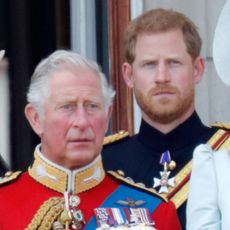 Prince Harry Wasn't Informed About King Charles's Hospitalization
Prince Harry Wasn't Informed About King Charles's Hospitalization"It looks like the duke only found out about his father's latest health update through the media."
By Amy Mackelden Published
-
 Jennifer Lawrence Styles a $7,500 Outfit With $100 Sneakers
Jennifer Lawrence Styles a $7,500 Outfit With $100 SneakersThe actress paired Prada and Celine with her $100 footwear.
By Amy Mackelden Published
-
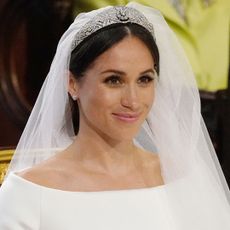 Meghan Markle and Her Makeup Artist Confirmed All Her Royal Wedding Beauty Products
Meghan Markle and Her Makeup Artist Confirmed All Her Royal Wedding Beauty ProductsAnd yes, you can shop them all here.
By Kayleigh Roberts Published
-
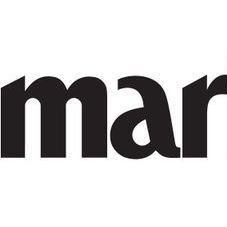 How the Caregiver Crisis Is Preventing Us from Fixing the Pay Gap
How the Caregiver Crisis Is Preventing Us from Fixing the Pay GapWomen hold two-thirds of the jobs in the lowest paying fields—and it's keeping us down.
By Phumzile Mlambo-Ngcuka Published
-
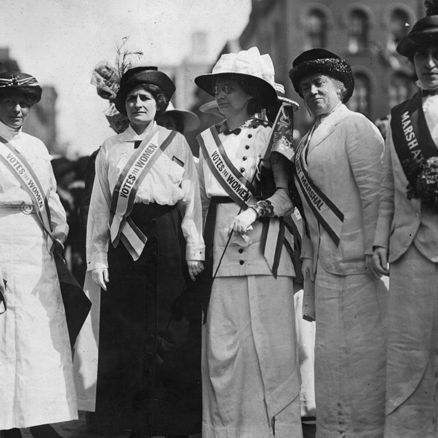 14 Things Women Couldn't Do 94 Years Ago
14 Things Women Couldn't Do 94 Years AgoFeatures In honor of the 19th Amendment, ratified 96 years ago today!
By Diana Pearl Published
-
 Racist Photo Sent in Wake of Sorority Rush at University of Alabama
Racist Photo Sent in Wake of Sorority Rush at University of AlabamaUniversity of Alabama and national chapter of the sorority in question are investigating image captured from social networking site.
By Kayla Webley Adler Published
-
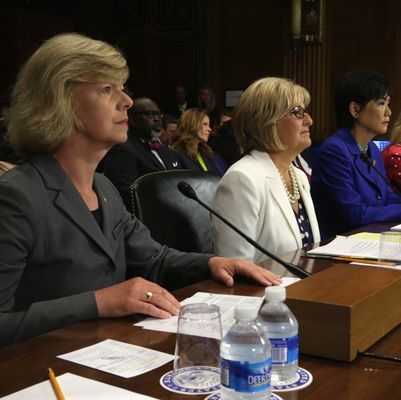 This Act Could Put an End to Anti-Abortion Legislation
This Act Could Put an End to Anti-Abortion LegislationWomen's right to choose is constantly at stake—but this might the solution.
By Diana Pearl Published
-
Yet Another Blow to Birth Control Coverage
The Supreme Court's latest decision will limit a key benefit for women.
By Laura Cohen Published
-
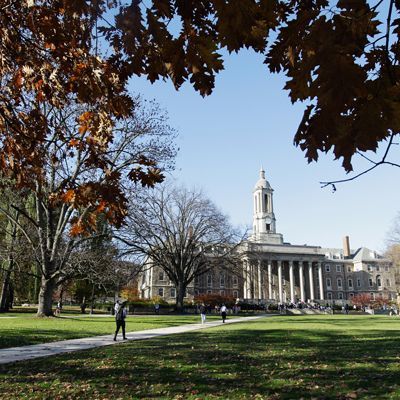 California Audit Finds Universities Are Failing Students Who Are Sexually Assaulted
California Audit Finds Universities Are Failing Students Who Are Sexually AssaultedState auditor report says colleges must do more to prevent, respond to, and resolve incidents of rape and sexual assault on campus.
By Kayla Webley Adler Published
-
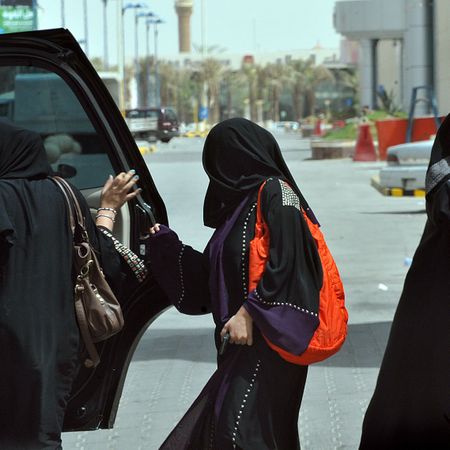 The Most Ridiculous Sexist Laws Across the Globe
The Most Ridiculous Sexist Laws Across the GlobeWe're not kidding with these.
By Diana Pearl Published
-
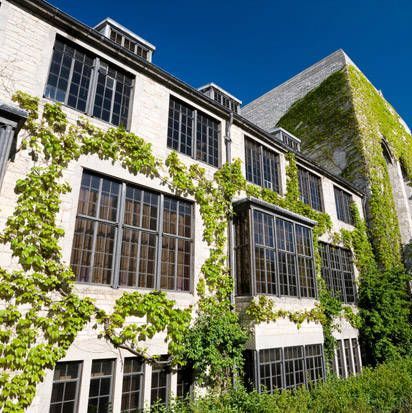 Sexual Assault Survivors Speak Out Against Campus Rape
Sexual Assault Survivors Speak Out Against Campus Rape"This is the civil rights movement of our generation"
By Allison Ellis Published